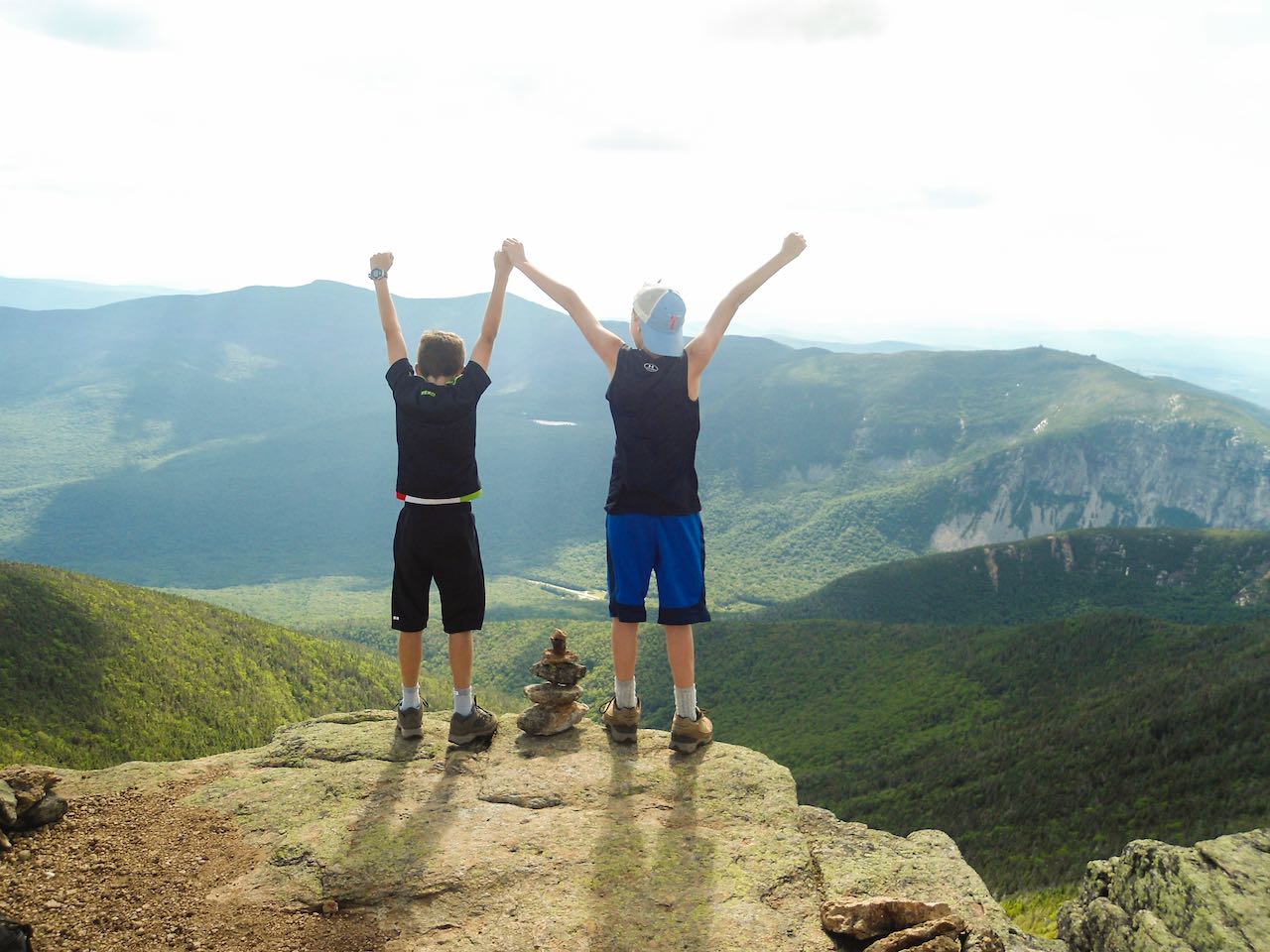Children and Nature
How Kingswood Teaches a Love for the Natural World and Models Environmental Stewardship

While Kingswood prides itself on being a light-hearted community – full of laughs and funny antics – don’t let that deceive you; Kingswood is a camp guided by educators who care deeply about creating the best physical and psychological environment for boys to grow and mature. Every element of our program is intentional, designed to support and strengthen our mission – to create a happy, close-knit community that treasures kindness, the natural world, and the joy of play; a place where boys develop confidence, make independent choices, value true friendship, and grow into responsible, caring young men.

As our mission statement says, one goal of the Kingswood experience is to help our campers treasure the natural world. While many scientific studies have proven how time outdoors can improve an individual’s mood, attention, and general health, it is also apparent that our planet needs more people who care about its well-being. In her paper “Learning to Love the Natural World Enough to Protect It”, researcher Louise Chawla conducted a series of interviews designed to understand what factors motivated individuals identified as committed advocates and/or protectors of the environment. She found that the most frequent motive was “positive experiences of natural areas in childhood and adolescence,” which was cited by 90% of participants. Richard Louv, in his book Leave No Child Inside, makes the same point when he says, “If experiences in nature are radically reduced for children, where will future stewards of the Earth come from?”

At Kingswood, boys have countless opportunities to find “positive experiences of natural areas” simply by being at camp – seeing the fog rise off the lake as they come down the hill to breakfast, noticing the way the light filters through the trees or the way the late afternoon sun reflects off the far shore, relaxing out on the lake during a sunset paddle, sitting at the council fire and listening to the calls of the loons. For the adults in the community, these simple pleasures never get old, and we make it a point to acknowledge the beauty of our surroundings, so that everyone is aware of the majesty of our surroundings. Soon enough, most campers – on their own – are taking stock of the pristine spaces and moments that make up a Kingswood summer.

But Kingswood also encourages campers to leave the comfortable confines of our campus and explore further afield, through swimming, fishing, and hiking trips. As David Sobel writes in his book Beyond Ecophobia, “What’s important is that children have an opportunity to bond with the natural world, to learn to love it, before being asked to heal its wounds.” In our opinion, nothing deepens one’s appreciation and love for the natural world more than direct experience – jumping off a rock ledge into a mountain stream, spending an evening on a remote trout pond, or pushing yourself up trails – past waterfalls and over ledges – till you reach the summit and can look down into the valleys and around to the other White Mountain peaks.

Philosophically, we believe it is best for campers to choose – rather than be required – to go on these trips. But as a camp we make it a point to heavily promote these excursions, and our hype and enthusiasm for these trips often convinces reluctant outdoorsmen to give them a try. We are also very mindful about what trips we send out, making sure it is a good match for the camper (based on their degree of experience) and that the trip includes something memorable, such as a great view from the summit, a ridge run between summits, a trail that crisscrosses mountain streams, or ideally, all of the above! If the challenge is appropriate and attitudes are good (and we do a lot of work on mindset and seeing difficulties as “wonderful hardships”), we are confident that the participants will return with a greater sense of pride in themselves and a greater appreciation for their surroundings. While we can take credit for providing the venue and the mindset, there is something profoundly true in this statement from a former camper (upon reaching the summit of Moosilauke): “This is what human beings are designed to do!” Boys are not wired to sit at a desk for hours at a day, they are wired to move their bodies and challenge themselves physically. And, upon completing a challenging task, to take stock of themselves, their world, and their place in the world.

It is these moments – both the subtle moments found around camp and the awe-inspiring moments found abroad – that help our campers forge a connection with their surroundings. And once that bond is formed and campers experience the power and grandeur of the physical world, the desire to preserve and protect those lands is not far behind.

But stewardship is not just about loving your land, it’s about taking action. Two ways we “practice what we preach” is through our facilities and our operations. When campers return to campus this summer, they will quickly notice our biggest “green” initiative to date – solar panels covering the Main Lodge and the east side of the Dining Hall. These panels will generate enough electricity to cover 90% of our energy use over the summer, and will create surplus energy throughout the off-season, which can be sold back to the power company. This switch away from fossil fuel based energy has already dramatically reduced our carbon footprint, and we plan to integrate the data from the panels (such as kilowatt hours of energy produced per day) into the camp program, with the hopes that it will raise awareness about solar power and pique campers’ interest in the field of green energy.

It is also essential for us to model best practices and get the campers involved. Environmental stewardship is not something we do occasionally – it is something that is integrated into the day-to-day operations of the camp. Although we do not use the term “comprehensive waste management plan,” campers participate in this “hidden curriculum” every day in the dining hall – with food waste being divided between trash, compost, and pig slop. Our hiking program is very committed to the concept of Leave No Trace, and everyone who goes on a Kingswood trip knows how seriously we take these principles and how important it is to us that we leave our trails and campsites better than we found them. We also see ourselves as caretakers for our lake, with snorkeling clinics combing the coastline collecting cans and other litter, and our CITs serving as Lake Hosts, inspecting incoming boats for invasive species at the public launch. Sometimes we even organize outings to support local environmental efforts, such as helping nearby towns control fast-spreading invasive species such as Japanese Knotweed.

For many of our campers, especially our oldest and most tenured campers, participating in these environmental and conservation efforts is a rewarding experience. Through their many years at camp, this place – Kingswood, Lake Tarleton, the White Mountains – becomes their special place. And as their connection to the land and water grows, so too does their desire to see these pristine lands preserved and protected.


Mind body and spirit…. Kingswood Camp For Boys takes the whole person into consideration when developing and implementing their outstanding program. Kudos Kingswood!